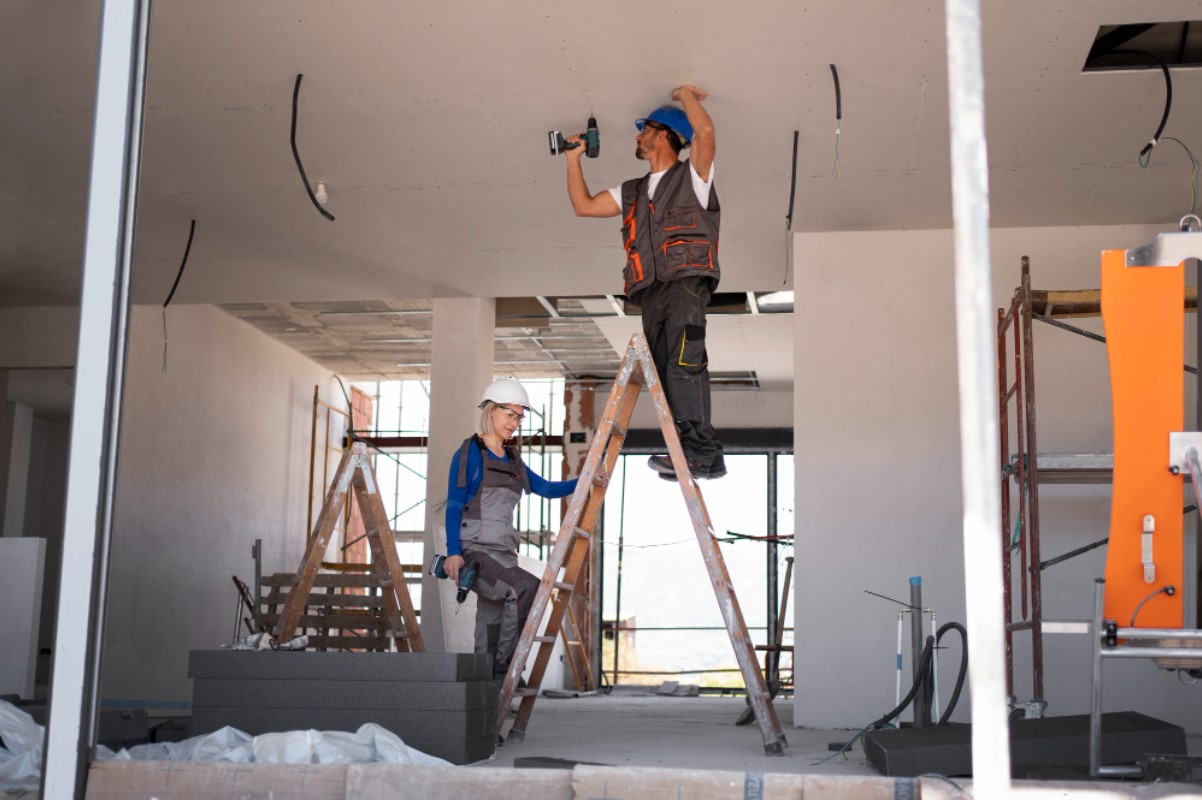In an era where mortgage rates soar, and home prices hit record highs, young Americans are rewriting the rule book on homeownership. No longer is buying a home reserved for romantic couples or solo adventurers; now, friends, siblings, and even colleagues are joining forces.
Nearly 15% of Americans have embarked on this journey, stepping beyond the traditional boundaries of home buying. It’s a new solution to an increasingly inaccessible market.
The Generational Shift in Homeownership

According to a study from JW Surety Bonds, Gen Z and Millennials are at the forefront of this change, driven not only by economic necessity but also by a significant shift in social norms and values. The data speaks volumes: 70% of Gen Z would prefer buying a home with a friend over traditional routes, reflecting a broader trend of redefining personal and financial commitments.
This approach isn’t merely a trend; it’s a reflection of a generation prioritizing practicality over tradition.
Economic Forces at Play

The driving force behind this shift is clear: economics. The average American home’s value has surged, making solo homeownership a daunting, often unattainable dream for many.
In December 2023, the average home was valued at a staggering $495,183, a leap that has left many younger Americans searching for alternative paths to homeownership (via The Daily Mail).
Sharing Costs, Sharing Lives

For many, the decision to co-buy isn’t just financial. It’s about community and shared experiences. The major upside? Cost-sharing.
By splitting expenses, co-buyers can afford better homes and reduce the individual burden of mortgage payments and maintenance costs. This collaborative approach to buying offers a sense of security in an otherwise volatile market.
The Responsibilities of Co-Owning

Of course, joint homeownership isn’t just about splitting bills. Sharing the responsibilities of maintaining a home also plays a part.
From everyday chores to major repairs, co-owners dive into the nitty-gritty of homeownership together. This shared responsibility can strengthen bonds but also requires clear communication and defined roles to ensure a harmonious living situation.
Navigating Interpersonal Challenges

While the financial benefits are appealing, the path of co-ownership isn’t without its hurdles, primarily the risk of interpersonal conflict. Conflicts over responsibilities, lifestyle choices, or financial decisions can strain relationships within the household environment.
That’s why 79% of potential co-buyers cite interpersonal conflict as a significant concern — with 11% of women being more likely to cite conflict as a concern (via JW Surety Bonds). This underscores the importance of clear agreements and open communication (via NerdWallet).
Legalities and Financial Risks

Beyond personal disputes, co-buying a home introduces legal and financial complexities. What happens if one party wants to sell early or can’t meet mortgage payments?
These scenarios can lead to significant financial and legal headaches, highlighting the importance of ironclad agreements and contingency plans.
Millennial Influence and Market Adaptation

Millennials, making up 57% of surveyed potential co-buyers, are shaping the housing market with their unique approach to homeownership (via JW Surety Bonds).
This generation’s preferences are prompting the real estate industry to adapt, offering more flexible ownership solutions and tailoring services to meet the needs of nontraditional buyers.
Diverse Goals of Co-Buyers

The motivations behind co-buying vary widely. Some view their shared property as a long-term home, while others see it as a stepping stone or investment opportunity.
This diversity in goals requires a flexible approach to co-ownership, with agreements (sometimes legally binding) tailored to the specific needs and plans of all parties involved.
Real Estate’s Response to a Changing Market

As co-buying becomes more common, the real estate market is responding with innovative solutions designed to accommodate this new wave of buyers (via Fortune).
From joint mortgage products to co-ownership contracts, the industry is evolving to support the diverse needs of modern homeowners.
The Future of Homeownership

The shift toward nonromantic co-buying is a reflection of changing economic realities and social values.
As this movement grows, it could redefine what it means to own a home, influencing not only the real estate market but also new norms on what community and personal relationships look like.
Adapting to New Norms

The concept of homeownership continues to evolve. Gen Z and Millennials, facing unique economic challenges and societal shifts, are leading the charge in redefining the path to owning a home.
The rise of nonromantic co-buying puts their adaptability and willingness on display, challenging traditional norms and setting new paths for generations to follow
